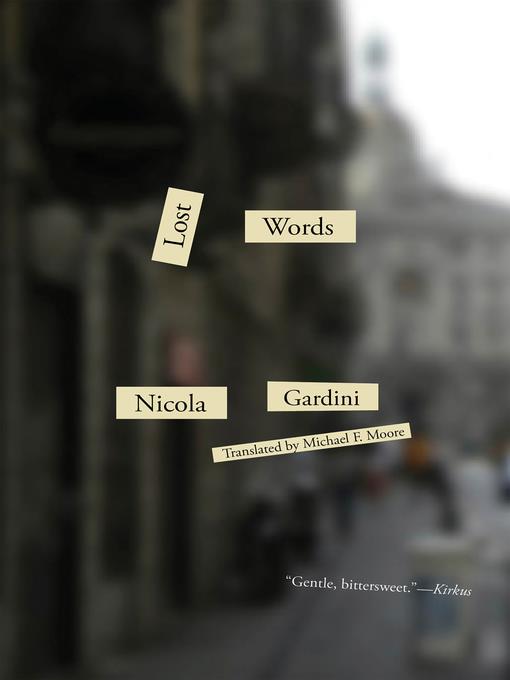
Lost Words
- اطلاعات
- نقد و بررسی
- دیدگاه کاربران
نقد و بررسی

November 9, 2015
It’s the 1970s, and 13-year-old Chino spends his free time observing his mother, Elvira, who works as the doorwoman at an apartment building on the fringes of Milan, fielding requests and complaints from the elderly and fickle residents, and cleaning their messes. The pair, along with Chino’s cinema-obsessed father, reside in the building’s small servants’ lodge, and Elvira dreams of one day buying a home to escape the henpecking and chaos of her work life. When a new resident, Amelia Lynd, moves to the building, Chino’s attentions shift. He visits the older woman regularly, and soon Lynd reveals an abandoned project, an English/Italian dictionary, to the boy. Their meetings become English lessons, which Chino quickly learns. But their friendship cannot prevent tragedy from striking. As the boy and his mother weather loss—Elvira’s hope to buy a place of her own is dashed by her husband—Lynd’s son, Ippolito, arrives and lifts their spirits. Gardini crafts a shaggy novel, with amusing tangents that complement his loose narrative. An entertaining, if occasionally meandering, read.

November 15, 2015
A boy comes of age in a chaotic building in chaotic early-1970s Milan. Chino, at 13, helps out his mother, Elvira, the "doorwoman" (an insulting title she disdains) in a slightly down-at-the-heels apartment house in Milan. Avid for status, Elvira oversees the tumult of life in the building, cleaning, doing favors, providing security, refereeing squabbles, compiling grievances...and desperately saving money, despite her husband's naysaying, so that when the owner sells to the tenants she can buy her ground-floor caretaker's apartment and ascend to the status of signora, which would bring equality with the building's sometimes-condescending denizens. An older British woman, the erudite and free-thinking Amelia Lynd, moves in, and soon young Chino becomes her pupil, ward, and near disciple. The maestra (a title awarded by Chino's mother, who's fond of honorifics) steeps him in literature and lexicography, steers him into a classical school, even tries to insist that his mother start calling him by his given name, Luca. For Elvira, a series of galling betrayals and disappointments follows, and meanwhile, the boy-narrator grows into a bookish semioutsider, one who describes his parents' fractious relationship, the soap opera of his mother's ambitions, the slights and conspiracies and idiosyncrasies of the tenants (later owners, with an insistence on the respect they believe ownership should confer), and the rest of his world with amused, affectionate semidetachment. A gentle, bittersweet, tragicomic rite-of-passage novel translated into lively English by Moore.
COPYRIGHT(2015) Kirkus Reviews, ALL RIGHTS RESERVED.




دیدگاه کاربران